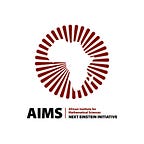The role of e-commerce in the health supply chain
Managing medical supply at a health facility directly affects the quality of health care delivered to the patient. And if medicines are continuously unavailable, patients suffer, and everyone loses confidence in the health system, antimicrobial resistance may develop because of delay in treatment, deaths may result if lifesaving medicines are out of stock while a constant pharmaceutical supply promotes effectiveness in health care delivery, inspires confidence in the health facility and contributes to job satisfaction and staff motivation. The performance depends on the health logistic cycle.
Quantification is among the first steps in the health logistic cycle. It is important for informing supply chain decisions on product selection, financing, procurement, and delivery. Quantification (in health supply chain context) is the process of estimating the quantities and costs of the products required for a specific health program (or service), and determining when the products should be delivered to ensure an uninterrupted supply for the program. As an activity, it follows a step-by-step approach with three major steps: preparation, forecasting and supply plan. The last activity in the preparation step involves collecting data for forecasting and supply planning steps.
Data for forecasting include consumption data, services data on the number of health services being provided, morbidity data, demographic data, and information on current program performance and expansion. However, the paper-based reports system has various challenges such us inaccuracy of data, data visibility might not be real-time, reporting rates are not optimal which lead to wrong decision making.
E-commerce in the health supply chain can provide innovative solutions to address the issues of expiration and shortages of pharmaceutical products in warehouses up to 100 %. Thereby strengthening policies of medical quantification, procurement process, inventory control, data management, and distribution, coordination of all health professionals and respect of Standards Operating Procedures (SOPs), treatment guides and protocols to enhance the health system and promote continuous pharmaceutical products availability thus, improving living standards of the country.
By Frederic NTIRENGANYA / AIMS Alumnus, Data Analyst — Rwanda Medical Supply Ltd (RMS Ltd)
The opinions expressed in this article are those of the author alone and not the African Institute of Mathematical Sciences.
